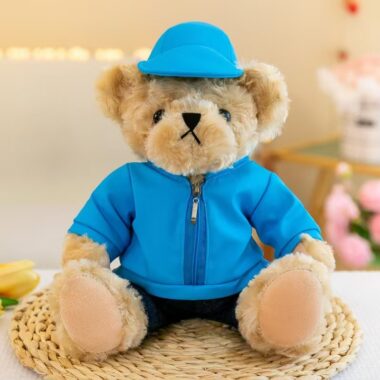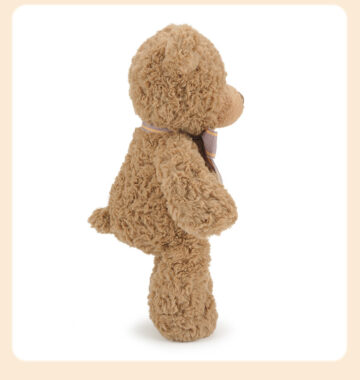Soft toys play a surprisingly important role in a child’s emotional development. Here are a few key reasons why they’re essential:
1. Provide Comfort and Security
Soft toys act as a source of comfort and reassurance, especially in new or stressful situations. When children are faced with separation anxiety or fears of the unknown, a favorite plush toy can be a soothing presence that helps them feel safe.
2. Encourage Imagination and Creativity
When children engage in pretend play with their soft toys, they create scenarios and stories, which fosters creativity and cognitive development. These imaginary play sessions often allow them to explore different emotions, roles, and social situations in a safe environment.
3. Teach Empathy and Care
Caring for a soft toy allows children to practice empathy and nurturing behavior. They often talk to their toys, feed them, and take care of them, which mirrors the way they will later interact with real-life relationships. This promotes emotional intelligence by helping them understand the needs and feelings of others.
4. Help Develop Social Skills
Children often talk to their soft toys or use them to engage in pretend play with others. This can help build communication skills and understanding of social roles. It also promotes teamwork and cooperation, as children often work together to take care of their stuffed animals in group play.
5. Aid in Emotional Regulation
Soft toys provide a safe outlet for expressing emotions. Children may confide in their toys, talk to them about their feelings, or use them to express things they might not yet have the words for. This helps them process complex emotions, such as frustration, sadness, or excitement, in a healthy way.
6. Support Transitions
Whether it’s starting school, moving to a new home, or dealing with a family change, soft toys can help ease transitions. By offering a sense of continuity and familiarity, they can make it easier for a child to adjust to new environments or situations.
7. Promote Sensory Development
Many soft toys are designed to be touched, squeezed, and cuddled. These sensory experiences help children develop tactile awareness, fine motor skills, and sensory processing abilities, which are important for overall development.
8. Strengthen Attachment Bonds
The emotional bond between a child and their favorite soft toy can be very strong. This attachment can be comforting and nurturing, much like the bond with a caregiver. This sense of attachment supports emotional stability and can even improve a child’s ability to build healthy relationships later in life.
Conclusion:
Soft toys aren’t just cute or fun—they’re integral to your child’s emotional well-being and development. They provide security, encourage social and emotional learning, and offer a source of comfort that helps children navigate the ups and downs of growing up.









